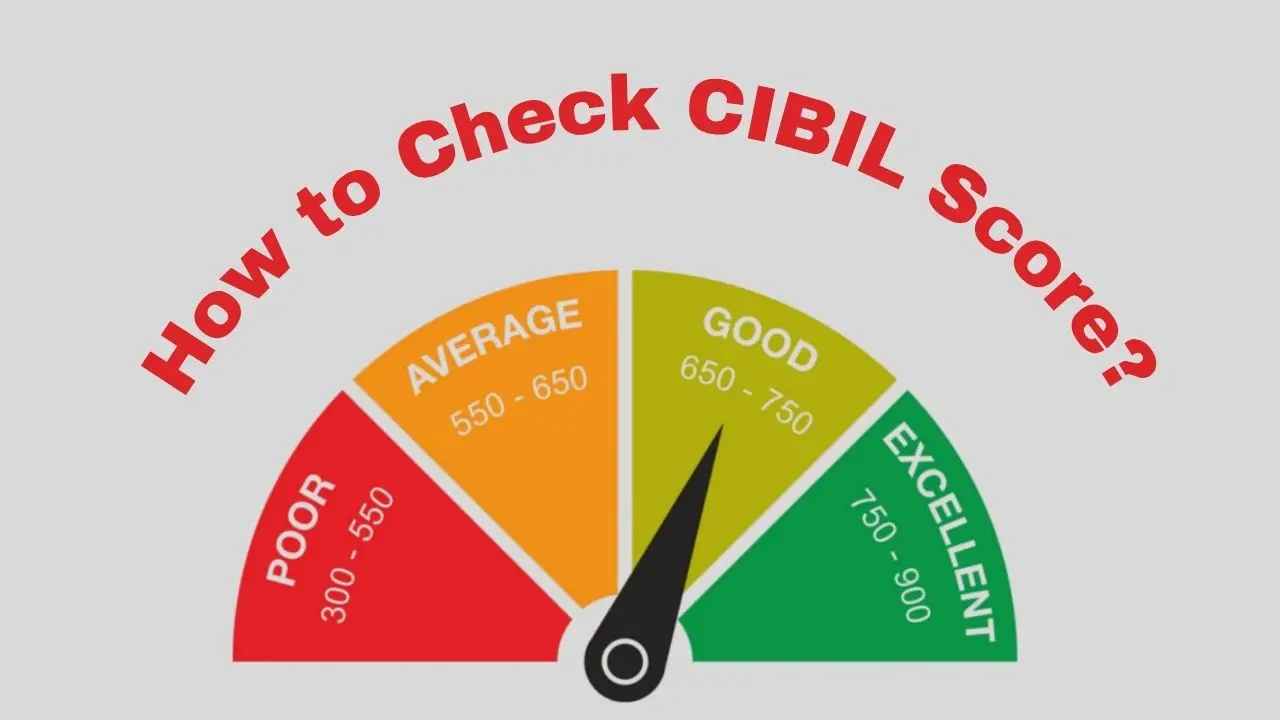A three-digit figure that represents your creditworthiness is your CIBIL score, sometimes referred to as your credit score. Your eligibility for loans, credit cards, and other financial goods is largely determined by it.
A higher CIBIL score, which ranges from 300 to 900, denotes better financial health and raises your chances of getting credit on favorable conditions. The major organization in India that creates and manages credit ratings is the Credit Information Bureau (India) Limited (CIBIL).
Effective money management requires knowing How to Check CIBIL Score. This tutorial offers a thorough, step-by-step method for determining your CIBIL score, along with information on why it matters and how to raise it.
What is a CIBIL Score?
Based on your credit conduct, a CIBIL score is a numerical representation of your credit history. It is computed using information from your credit accounts, such as loan inquiries, credit use, payback history, and credit kinds.
While a score below 600 could make it difficult to get credit, a score above 750 is usually regarded as favorable. You may keep informed about your financial situation and take any remedial action by routinely reviewing your CIBIL score.
Importance of Checking CIBIL Score
It’s a good idea to check your CIBIL score once a year, but it’s best to do it every month. Credit data is often updated by banks and NBFCs, and being proactive benefits you:
- Look for mistakes or inconsistencies in your report.
- Monitor repayment trends to raise your credit score.
- Determine the elements affecting your credit health, such as high credit use or late payments.
Tips to Maintain a Healthy CIBIL Score
- Check your report for mistakes: Immediately dispute errors with CIBIL.
- On-time payment of credit card bills and EMIs: Your score is badly impacted by late payments.
- Maintain a low credit use rate: Less than 30% of your available credit limit should be used.
- Don’t apply for more than one loan: Financial difficulties may be indicated by frequent applications.
Benefits of a good Credit/CIBIL Score
- You may bargain for your desired terms, such as reduced interest rates, extended payback periods, larger loan amounts, etc., and borrow money at lower costs.
- You may be preapproved for and considered eligible for credit facilities such as credit cards, auto loans, home loans, and personal loans from various issuers.
- Many lenders provide personal loans without requiring collateral if you have a strong CIBIL score report.
- You could also be able to get offers for insurance goods like life, house, and auto insurance at reduced premium rates if your credit score is high.
- Instead of you needing to look for these service providers, lenders and insurers will contact you to provide credit facilities and insurance products, respectively. In this manner, you may select from a variety of offers and accept the one that best fits your needs.
- When renting out their properties, landlords and property managers frequently request your credit score. Apartments, villas, and other properties are easier to rent out if you have a high credit/CIBIL score.
- When you have a consistently high CIBIL score, you can obtain money quickly in the event of an unexpected medical or financial emergency without having to deal with complicated paperwork or other inconveniences.
- The finest, lower-interest credit cards with plenty of benefits and prizes, such as invites to special or privileged cards and those with insurance coverage benefits, are more likely to be offered to you if you have good credit.
How to Improve your Credit/CIBIL Score?
- Don’t use more than 30% of your credit cards’ available credit.
- Avoid submitting several hard queries for credit products in a short period of time.
- Wait until you have paid off all of your current bills before taking up any new credit.
- You risk getting into a debt trap if you take out more loans than you can pay back.
- Make timely, default-free payments on your credit card bills and outstanding loan EMIs. Payment reminders can be created.
- Pay down the complete credit card bill rather than simply the minimum amount owed or in installments.
- Selecting loans with lengthier payback terms might lower your risks of defaulting because they usually convert to affordable EMIs.
- Make sure you keep a good variety of credit goods, but make sure you pay back the debts on schedule.
- To progressively achieve a high CIBIL score, apply for a credit card and begin establishing your credit history soon as you can.
How to Check Cibil Score?
- Visit the “Get Your CIBIL Score” portion of the CIBIL website.
- Provide your basic information, such as your full name, phone number, and email address.
- To produce your report, you must enter your PAN number precisely. Verify the information again to prevent mistakes.
- Answer inquiries concerning your credit cards and loans. These responses aid in the creation of your credit report and the calculation of your CIBIL score.
- Paid subscription options for some reports will be available to you. At the bottom of the page, choose “No Thanks” to receive a free report once. A confirmation message will show up when your account has been established.
- Enter your already registered email address and password to log in.
- Look for a verification link and one-time password (OTP) in your registered email.
- After clicking the link and entering the OTP, follow the prompts to update your password.
- Your personal information will automatically appear if you log in again; if not, please input it. After entering your phone number, click “Submit.”
- Your credit record and CIBIL score will be shown on your dashboard. To obtain a comprehensive summary of your credit history, download the report.
Conclusion
How to Check CIBIL Score, Maintaining sound financial health requires routinely reviewing your CIBIL score. Better credit card offers, loan arrangements, and financial prospects are made available to those with a high score. You may gradually establish a solid credit profile by adhering to basic practices like making on-time payments, keeping your credit use low, and keeping an eye out for mistakes in your reports. Remain proactive, exercise prudent credit management, and experience sustained financial security.






